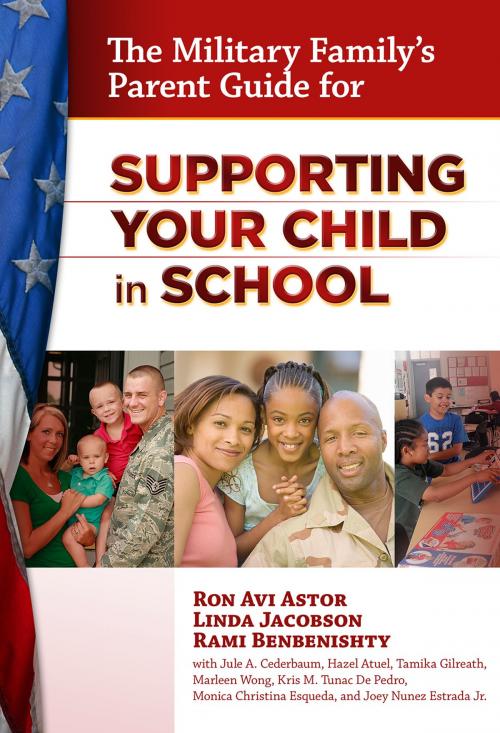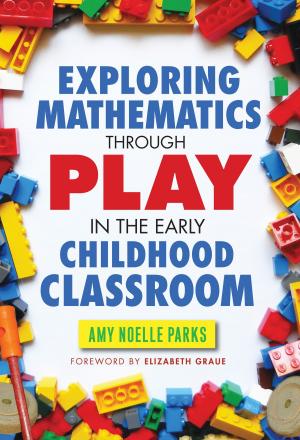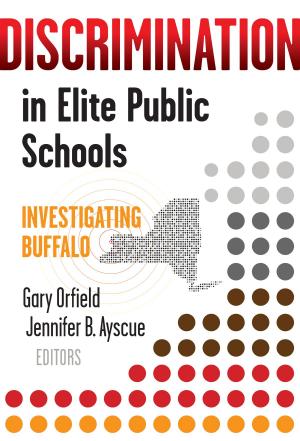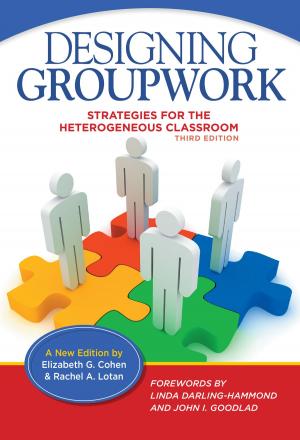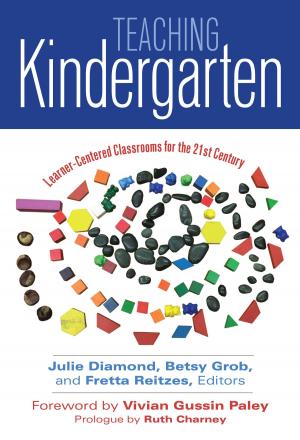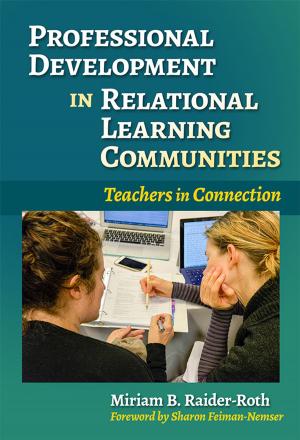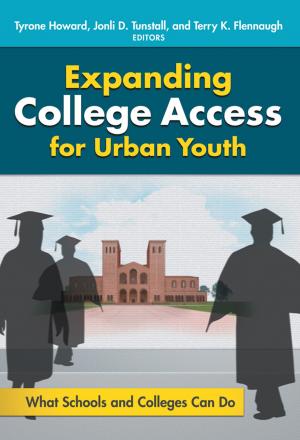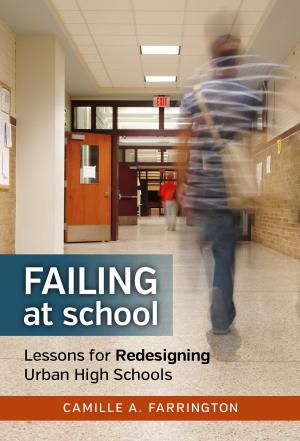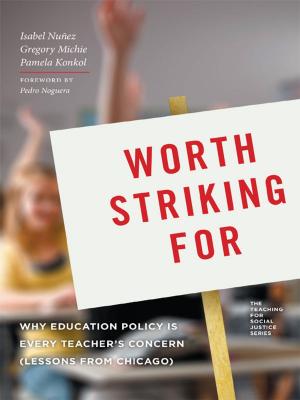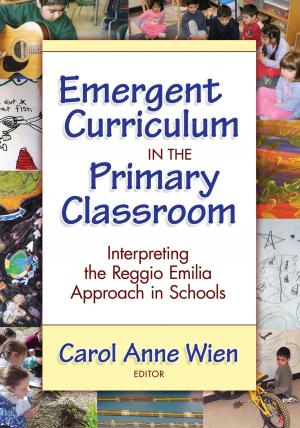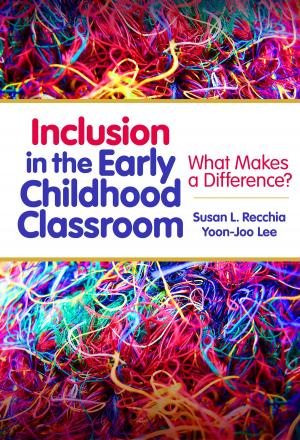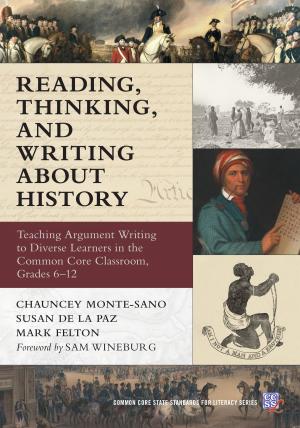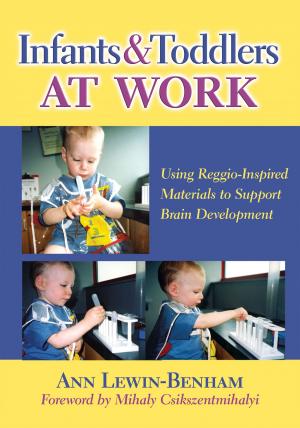The Military Family's Parent Guide for Supporting Your Child in School
Nonfiction, Reference & Language, Education & Teaching, Parent Participation, Educational Theory, Leadership| Author: | Ron Avi Astor, Linda Jacobson, Rami Benbenishty | ISBN: | 9780807772096 |
| Publisher: | Teachers College Press | Publication: | December 15, 2009 |
| Imprint: | Language: | English |
| Author: | Ron Avi Astor, Linda Jacobson, Rami Benbenishty |
| ISBN: | 9780807772096 |
| Publisher: | Teachers College Press |
| Publication: | December 15, 2009 |
| Imprint: | |
| Language: | English |
While it is true that children from military families live unique and interesting lives, it is also true that they face many challenges and special circumstances that civilian children and families don't experience. These can include gaps in school attendance and learning due to frequent moves, being separated from a parent who has been deployed, and a sense of isolation in the midst of a civilian community.
This unique guide provides parents with the information they need to choose a welcoming school or daycare program and suggests steps they can take to advocate for their children. It also highlights the types of questions parents should ask about how their children are faring socially, emotionally, and academically, such as:
- What can I do to help my child make a smooth transition to a new school?
- How can I support my child academically?
- What role can sports and extracurricular activities play?
- What resources or staff does my school have to meet the needs of military children?
Written in an engaging style by experts in the field, this guide will help parents form partnerships with teachers and administrators as they work to make schools more military-friendly.
All royalties from the sale of these books are being donated to military children's educational causes.
Prepublication Reviews:
“Military-connected students often pay a high price in their schooling experiences due to the realities of military life. Thus, these guides are invaluable tools for parents, schools, and educator-preparation programs that want to provide rich academic, social, and emotional support to this vulnerable population of children. Preparation programs should consider these guides as key components of their curriculum to prepare incoming teachers, counselors, principals, and others to work effectively with military-connected students.”
—American Association of Colleges for Teacher Education
“I am grateful to the USC Building Capacity team headed by Ron Avi Astor for developing this exceptional resource and attuning it specifically to the needs of military-connected parents and caregivers. The content and accompanying strategies provide practical, experience-based insights that are well-supported by good science. Parents and other family members will find this reliable source useful and sensitive.”
—Mary M.Keller, Ed.D., President and CEO, Military Child Education Coalition
“As an adult who spent most of my youth in military-connected schools in Virginia, I know too well what happens when adults in schools did not understand the unique experiences of being from a military family. Thus, as a scholar, educator, and military child, I am thrilled to be able to endorse these guides because they will educate adults about ways to be helpful through evidence-based prevention and intervention.”
—Dorothy L. Espelage, Ph.D., Professor & University Scholar, Department of Educational Psychology, Child Development Division, University of Illinois
“This book offers the most up-to-date, research-based suggestions on how to improve the educational outcomes for children with parents in the military. Some of the suggestions reflect best practices for all children in any school and will be of general interest. Other suggestions are specific for dealing with military families. The texts are thoughtful and highly readable. The specific examples from states and schools are particularly useful and informative. Astor and his colleagues have created a first-of-its-kind narrative that exemplifies the best in translational educational research.”
—William G. Tierney, University of Southern California
While it is true that children from military families live unique and interesting lives, it is also true that they face many challenges and special circumstances that civilian children and families don't experience. These can include gaps in school attendance and learning due to frequent moves, being separated from a parent who has been deployed, and a sense of isolation in the midst of a civilian community.
This unique guide provides parents with the information they need to choose a welcoming school or daycare program and suggests steps they can take to advocate for their children. It also highlights the types of questions parents should ask about how their children are faring socially, emotionally, and academically, such as:
- What can I do to help my child make a smooth transition to a new school?
- How can I support my child academically?
- What role can sports and extracurricular activities play?
- What resources or staff does my school have to meet the needs of military children?
Written in an engaging style by experts in the field, this guide will help parents form partnerships with teachers and administrators as they work to make schools more military-friendly.
All royalties from the sale of these books are being donated to military children's educational causes.
Prepublication Reviews:
“Military-connected students often pay a high price in their schooling experiences due to the realities of military life. Thus, these guides are invaluable tools for parents, schools, and educator-preparation programs that want to provide rich academic, social, and emotional support to this vulnerable population of children. Preparation programs should consider these guides as key components of their curriculum to prepare incoming teachers, counselors, principals, and others to work effectively with military-connected students.”
—American Association of Colleges for Teacher Education
“I am grateful to the USC Building Capacity team headed by Ron Avi Astor for developing this exceptional resource and attuning it specifically to the needs of military-connected parents and caregivers. The content and accompanying strategies provide practical, experience-based insights that are well-supported by good science. Parents and other family members will find this reliable source useful and sensitive.”
—Mary M.Keller, Ed.D., President and CEO, Military Child Education Coalition
“As an adult who spent most of my youth in military-connected schools in Virginia, I know too well what happens when adults in schools did not understand the unique experiences of being from a military family. Thus, as a scholar, educator, and military child, I am thrilled to be able to endorse these guides because they will educate adults about ways to be helpful through evidence-based prevention and intervention.”
—Dorothy L. Espelage, Ph.D., Professor & University Scholar, Department of Educational Psychology, Child Development Division, University of Illinois
“This book offers the most up-to-date, research-based suggestions on how to improve the educational outcomes for children with parents in the military. Some of the suggestions reflect best practices for all children in any school and will be of general interest. Other suggestions are specific for dealing with military families. The texts are thoughtful and highly readable. The specific examples from states and schools are particularly useful and informative. Astor and his colleagues have created a first-of-its-kind narrative that exemplifies the best in translational educational research.”
—William G. Tierney, University of Southern California
